When it comes time to choose course options for Secondary 5, many questions arise: What options open all doors in cégep? Is it necessary to open all of these famous doors? Will the options offered by the school, other than sciences, open the door to a college education? Are sciences indispensable?
A good number of parents, and incidentally their children, believe that sciences must be chosen at all costs (even if the student has no interest in them) to keep their options open. In some cases, particularly for those students who like these subjects and can do the work, this makes sense. However, for many young people this is not the case: some prefer languages, arts or sports, and experience significant difficulties in science.
Open or close doors?
When choosing a career, students with little or no interest in science are likely to opt for technical, vocational or pre-university education that doesn’t require Secondary 5 science. Some students choose the sciences despite their difficulties and lack of interest, and then watch their overall average drop, maybe even finding themselves refused entry into restricted programs.
The examples speak for themselves
- The student who wants to enter Police Technology in cégep cannot be admitted if his overall average has suffered because of his poor results in science, even if Police Technology does not require Secondary 5 science.
- The Nursing DEC program only requires Secondary 5 chemistry (subject to Ministry approval) and Secondary 4 environmental science and technology, or science and the environment courses. It is yet another program that is increasingly restricted and that may refuse admission to students with low grade averages.
It is important to consider the student’s interests and strengths when it comes time to choose Secondary 5 options. This will better interest and motivate them and improve results. Professionals such as teachers and guidance counsellors can support and guide them in these choices. Also, it is important to know that students who do not complete chemistry or physics in Secondary 5 can, if they want, retake these courses in cégep (if offered by the institution) or in an adult education program.
Secondary 5 Options
Choosing an option is a delicate process for most… While some youth love science, others prefer to look at other options. The guidance counsellor is best placed to help them make a clear decision considering their eventual career plan.
The Chemistry program is an extension of the programs in Secondary Cycles 1 and 2. It is intended to consolidate and enrich students’ scientific training and is a prerequisite for several pre-university or technical programs at the college level. Its content focuses on one subject with compulsory concepts organized around four general concepts: gases, energy changes in reactions, reaction rate and chemical equilibrium.
Chemistry and pre-university education
To open doors to all pre-university education programs, including natural sciences, chemistry must be combined with physics and with technical and scientific or science math in Secondary 5. That said, the student that has only chosen chemistry and prefers school-specific options (languages, sports, arts), can still be admitted to pre-university education programs such as social science, arts, literature and history.
Chemistry and Technical College training
The student who has achievements in chemistry, physics and technical and scientific or science mathematics in Secondary 5, can enter all technical training programs. Some programs however are restricted, so places are limited, and additional conditions may apply (physics tests, superior grades, etc.).
As is the case with pre-university education, students with less interest in physics or mathematics and who only opt for chemistry can still pursue technical programs according to their interests.
The Physics program is an extension of the programs in Secondary Cycles 1 and 2. It is intended to consolidate and enrich students’ scientific training and is a pre-requisite for several pre-university or technical programs at the college level. Its content focuses on one subject with compulsory concepts organized around four general concepts: kinematics, dynamics, transformation of energy and geometric optics.
Physics and pre-university education
To open the door to all pre-university education, including sciences, physics must be combined with chemistry and Secondary 5 technical and scientific and science math. That said, students that have only chosen physics and prefers their school-specific options (languages, sports, arts) can still pursue pre-university programs such as social science, arts, literature and history.
Physics and Technical College training
The student who has achievements in physics, chemistry and Secondary 5 technical and scientific, and science math, can access all technical training programs. Some programs, however, are restricted and places are therefore limited. Additional conditions may apply (physics testing, superior grades etc.).
Just as is the case with pre-university education, the student that has less interest in chemistry or mathematics and who only opts for physics, can still access interesting technical programs according to their interests.
Continuity with Secondary 4
The choice of mathematics for Secondary 5 usually coincides with the choices already made for Secondary 4: a student who chose Cultural, Social and Technical (CST) math in Secondary 4 will pursue CST in Secondary 5.
Some schools offer different choices according to criteria established by the administration, and there are “bridge” courses that allow passage from one math option to another (with certain conditions). Refer to your school board or school service centre for more information.
All Quebec high schools offer their own specific options. Whether it’s in languages, literature, arts, international programs or sports, students have access to a multitude of choices offering them a high school education that can speak to their interests. You can get more information by visiting the websites of educational institutions, school boards and service centres in your area.
Inspiré des documents du ministère de l’Éducation.
